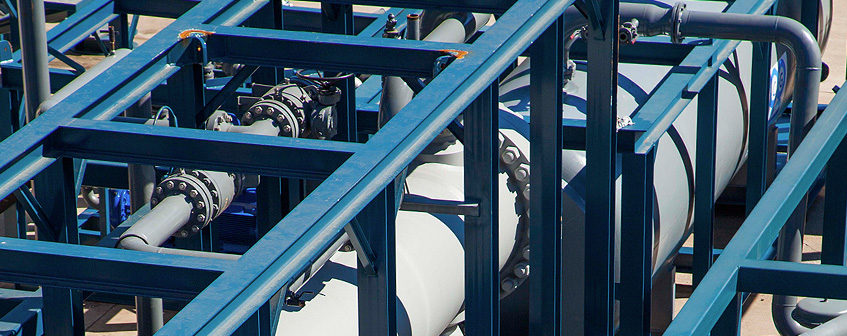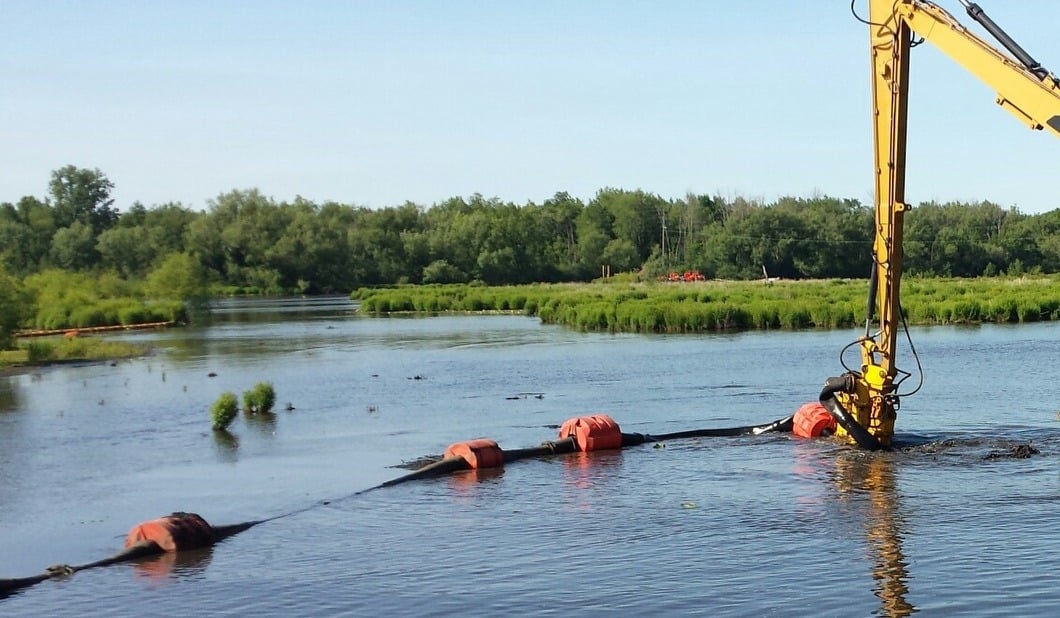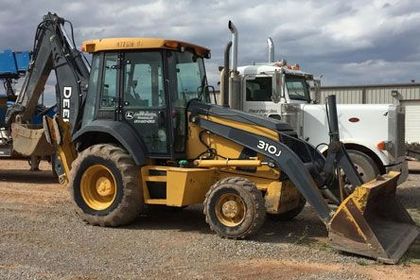Superior Rentals near me: proven strategies for choosing the right partner
A Comprehensive Guide to the Various Types of Oil Field Equipment and Pipeline Equipment Available
The oil and gas sector relies greatly on specific equipment for effective extraction and transportation. Numerous sorts of machinery, from piercing rigs to tank, play vital functions in this intricate process. Each item of tools serves distinct features that add to overall functional success. Comprehending these parts is important for any individual entailed in the field. As the industry progresses, so also do the modern technologies that sustain it. What improvements are on the perspective?

Drilling Rigs: The Foundation of Oil Expedition
Drilling rigs function as the crucial machinery in the domain of oil expedition, allowing firms to gain access to hydrocarbon reserves hidden deep beneath the Earth's surface. These rigs are available in numerous kinds, consisting of land rigs, offshore rigs, and mobile systems, each created to operate in particular settings. Furnished with advanced innovation, piercing rigs can permeate geological formations with accuracy, ensuring effective source extraction. The structural honesty and operational abilities of these rigs are vital, as they have to stand up to severe conditions and significant pressures. Additionally, the selection of a boring gear affects the total job cost and timeline, making it a crucial consideration for oil business looking for to maximize their expedition initiatives and optimize productivity in their procedures.
Pumps: Essential for Liquid Activity
In the oil extraction process, the duty of pumps is significant, promoting the activity of liquids throughout different phases of production. Pumps are essential for delivering petroleum, water, and various other fluids from below ground reservoirs to the surface and after that with pipelines to refineries. They are available in different kinds, consisting of centrifugal, favorable variation, and completely submersible pumps, each offering details objectives based upon the fluid qualities and functional needs. Centrifugal pumps are frequently used for their efficiency in high-flow applications, while favorable variation pumps stand out in taking care of thick liquids. The choice of pump influences overall efficiency, operational safety, and maintenance expenses. Proper choice and maintenance of pumps are important for maximizing manufacturing and reducing downtime in oil field operations.
Shutoffs: Controlling Circulation and Pressure

Shutoffs play an important function in managing the flow and pressure of liquids within oil fields and pipelines. Numerous kinds of shutoffs offer unique applications, each created to meet particular functions essential for reliable operation - Superior Rentals near me. Comprehending the features and uses these shutoffs is important for optimizing system efficiency and safety
Kinds of Valves
Crucial elements in oil field operations, valves play an important role in regulating the flow and pressure of liquids within pipelines and devices. Different sorts of valves are utilized to fulfill the diverse demands of oil and gas manufacturing. Typical kinds include gate valves, which supply a straight-line flow and marginal pressure decrease; world valves, recognized for their throttling capabilities; and sphere shutoffs, recognized for their quick on/off control. In addition, check valves prevent backflow, while butterfly valves use a lightweight remedy for managing circulation. Each valve kind is created with specific materials and configurations to withstand the severe conditions often discovered in oil fields, guaranteeing reliability and performance in procedures. Comprehending these types is vital for efficient system administration.
Valve Applications and Functions
While different kinds of valves serve distinctive functions, their main applications rotate around regulating circulation and stress within oil and gas systems. Shutoffs such as gate, world, and ball valves regulate fluid motion, ensuring peak efficiency and security. Entrance shutoffs are frequently used for on/off control, giving minimal circulation resistance. Globe shutoffs, on the various other hand, deal accurate circulation policy, making them ideal for strangling applications. Ball shutoffs are preferred for their quick procedure and tight securing capacities. Furthermore, stress safety valve are critical for avoiding system overpressure, protecting devices honesty. Overall, the ideal choice and application of shutoffs boost operational performance, guaranteeing the reputable transportation of oil and gas through pipelines and handling centers.
Compressors: Enhancing Gas Transportation
Compressors play an essential duty in the efficient transport of natural gas, making certain that it moves efficiently via pipelines over long distances. These devices boost the stress of gas, permitting it to get over friction and elevation adjustments within the pipeline system. Furthermore, compressors facilitate the harmonizing of supply and demand, suiting fluctuations in intake and manufacturing prices. Different kinds of compressors are employed in the sector, consisting of centrifugal, reciprocating, and rotary screw compressors, each offering unique advantages based on the functional demands. Normal maintenance of these compressors is important to maximize efficiency and lessen downtime, eventually adding to a trusted gas transportation network. Their important function highlights the relevance of compressors in the general oil and gas facilities.
Storage Tanks: Safe and Reliable Fluid Administration
Reliable transportation of natural gas depends on different support group, among which is the proper repipe specialists near me monitoring of tank. These storage tanks play a necessary role in safely containing fluids, making sure that operational efficiency is maintained while lessening ecological risks. Built from resilient products, they are made to endure high stress and harsh aspects. Properly sized and purposefully located, storage space containers help with the smooth flow of gas and other liquids, preventing traffic jams in supply chains. Normal maintenance and surveillance are critical to discover leakages or architectural problems, promoting safety and compliance with governing requirements. Ultimately, the effective management of storage space tanks is vital for the overall stability and reliability of the oil and gas sector's liquid handling systems.
Pipeline Equipments: Facilities for Transportation
Pipeline systems serve as the backbone of the oil and gas industry, assisting in the effective transportation of hydrocarbons over vast distances. These systems are composed of various parts, including pipes, valves, pumps, and compressors, all meticulously developed to ensure smooth flow. The materials used in pipeline building, often steel or high-density polyethylene, are chosen for sturdiness and resistance to deterioration. Pipeline networks can extend throughout land and water, well water pipe connecting production websites to refineries and distribution. In addition, progressed modern technology makes it possible for real-time surveillance of circulation prices and stress degrees, enhancing functional performance. The calculated placement of these pipelines lessens ecological impact while optimizing source ease of access, thus playing a crucial function in meeting power needs globally.
Security Equipment: Making Sure Employee and Environmental Defense
The procedure of pipeline systems, while important for power transport, also offers significant security challenges for employees and the environment. Safety and security equipment plays a significant duty in mitigating these risks. Personal safety equipment (PPE) such as helmets, handwear covers, and non-slip shoes safeguards workers from physical dangers. Additionally, gas discovery systems monitor for leaks, ensuring that unsafe materials do not posture a danger to employees or the bordering ecological community. Emergency situation shutdown systems are important for quickly stopping procedures during a dilemma, avoiding prospective catastrophes. Spill control products, including absorbents and barriers, are basic for decreasing environmental effect. Overall, purchasing all-inclusive safety equipment is critical for preserving operational stability and safeguarding both employees and the atmosphere in the oil and gas industry.

Frequently Asked Concerns
Exactly how Do I Choose the Right Oil Field Equipment for My Project?
Picking the appropriate oil field devices involves evaluating job requirements, budget plan restraints, and site operational demands. Take into consideration factors such as devices reliability, compatibility with existing systems, and the distributor's online reputation to assure peak performance and safety.
What Are the Maintenance Demands for Oil Field Equipment?
Maintenance requirements for oil field equipment include routine inspections, lubrication, and timely fixings. Operators must likewise abide by manufacturer guidelines, monitor performance metrics, and assurance conformity with security regulations to enhance longevity and efficiency.

Just How Can I Make Certain Conformity With Environmental Rules?
To guarantee conformity with ecological guidelines, business must perform routine audits, execute ideal techniques, purchase training, maintain proper documents, and remain updated on legislation (Superior Rentals midland). Partnership with environmental firms can also improve adherence to laws
What Is the Typical Life-span of Pipeline Equipment?
The typical life expectancy of pipeline tools usually ranges from 20 to half a century, relying on elements such as worldly quality, ecological conditions, and maintenance practices. Normal examinations can considerably affect durability and operational efficiency.
How Do I Securely Move Oil Field Equipment to Remote Locations?
Moving oil area devices to remote places needs cautious preparation, including path assessment, protecting authorizations, utilizing ideal automobiles, and guaranteeing safety and security methods are complied with. Appropriate training and interaction among staffs are necessary for effective transport.